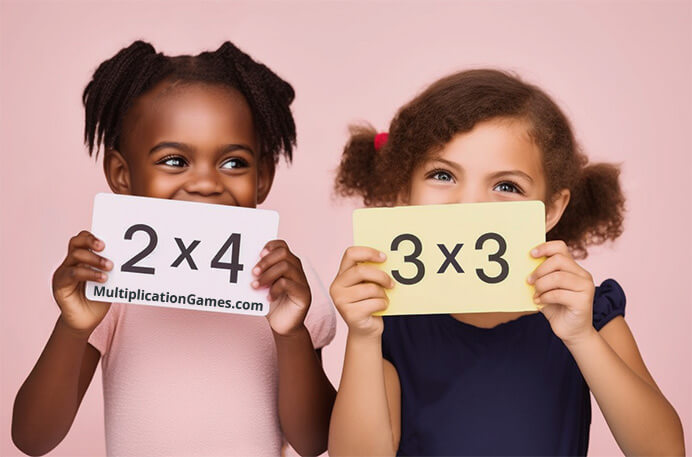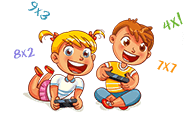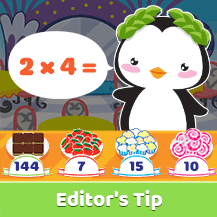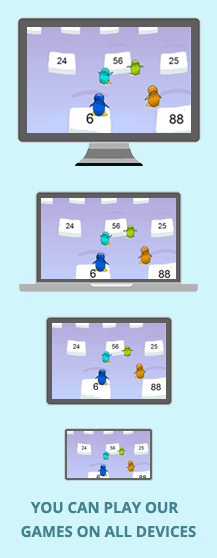Top 8 Tools to Help Kids Learn Math
By Megan - 04/06/2023
If your child struggles to learn new math skills, it may be time to get creative with innovative teaching methods. Many kids believe they aren’t naturally good at math, but oftentimes, they just need more stimulating activities to help them practice their skills.
A great approach to math tools is mixing digital and physical solutions to create an engaging environment for your child. Depending on their age, new activities can help postpone boredom while increasing memory retention.

In this article, we will break down the top 8 tools to help kids learn math outside of everyday teaching lessons. Now is a great time to grab a pen and paper to jot down the best solutions for your child, as it will likely vary with age.
1. Mnemonics
Mnemonics refer to made-up phrases that relate to certain facts. Since they are often catchy and outlandish, mnemonics make it easier to remember difficult topics. A popular example of this is “Please Excuse My Dear Aunt Sally.” Many people also know this as PEMDAS, representing parentheses, exponents, multiplication, division, addition, and subtraction.
If your child needs to remember the method to solving a certain equation, consider making up your own mnemonics phrase. Pick some of your child's favorite things to represent the words, and you might be surprised how much this simple hack helps them.
2. Dice
Dice are some of the easiest and most accessible tools to help kids with a variety of math skills. Whether your child is just learning the basics or starting to juggle more difficult multiplication problems, you can use dice as a basis for practice. Consider adding in more dice as your child starts to master certain skills. Having your child roll the dice and multiply the two numbers can be a great way to teach them how to solve problems on the spot quickly.
3. Multiplication Keys
Multiplication keys have become popular in recent years as they are a small, handheld practicing solution for kids. Each set comes with around ten keys individually inscribed with different numbers. Kids must wrap the attached string from the problem on the left of the keys to the answer on the right. Once they are done, they can check the back of the key to see if they got it correct. This mobile device is great for kids that are learning their tables, and it’s an easy tool to take on the go.
4. Multiplication Flash Cards
There are plenty of multiplication flash cards available that come in sets, allowing you to choose the proper level for your child. It’s an efficient way to help build associations with answers to basic or advanced multiplication problems.
Even if they don’t get the answer correct at first, kids can keep practicing with their cards to develop their skills. Multiplication flash cards have been proven to improve math fluency for kids in elementary school, although there are sets available for more advanced grades.
5. Plastic Math Cubes
While younger kids typically use stackable plastic math cubes, they can also be a great tool for teaching multiplication and division. Since the plastic cubes come in large quantities, there are enough cubes for kids to create visuals for their addition and multiplication problems.
For example, if your child is trying to learn 6 x 6, they might stack six rows of stick cubes. A visual representation can help kids understand multiplication techniques while building associations with other math skills like addition and subtraction.
6. Physical Money
If you have access to physical cash or spare change, it could be a great opportunity to integrate math into real-world skills. Kids will learn how to understand the value of money while beginning to practice addition, subtraction, division, and multiplication. Some other ways to integrate money tools into your kids' math practice is with games like Monopoly, which mimic the basics of handling cash.
7. Abacus
Although you may not initially recognize the name, the Abacus is one of the most widespread math tools. Amongst math manipulatives, Abacus are a great investment as they are often made of durable wood and can be found in different styles.
They boast a long lifespan since preschoolers can use them, and so can kids up to fifth grade. Abacus allow for a lot of flexibility for both simple and more complex math problems. If your child is a visual or kinesthetic learner, they might enjoy using this tool to practice.
8. Online Math Games
Nearly every child will jump at the opportunity to use a computer or tablet; however, many parents want to ensure they use their time constructively. Online math games are a great way to immerse your child into a new world while allowing them to practice math independently.
Many math games will create an online environment, giving your child an overall objective to win the game. In order to win, they must complete all the math equations in a timely manner. As the game progresses, it will get increasingly difficult, encouraging kids to challenge their skills and master new concepts.
The storytelling element behind math games can remove the stigma associated with practicing education skills. The visual world can teach them important lessons about different topics while decreasing anxiety and boosting confidence. These tactics can be incredibly important for sharpening test-taking skills and fast-response problem-solving.
If you are interested in helping your child brush up on their multiplication skills, make sure to check out all the free multiplication games available on our website!






